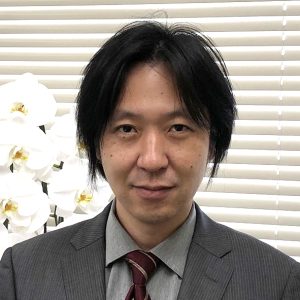研究テーマ
私たちのミッション:脳の謎を解き明かし、未来の医療を創造する 脳は人間の体で最も複雑で神秘的な器官です。その脳が発達する過程で、遺伝子変異などの原因により、時に遺伝子のプログラムがうまく機能しないことがあります。その結果、脳腫瘍という重篤な病気が発生することがあります。こうした現象を、私たちの研究室では様々な脳腫瘍モデルを開発・利用することで、神経発生学やゲノム機能学の視点から深く掘り下げ、理解を進めています。私たちの主な目的は、脳腫瘍の形成メカニズムを明らかにし、それを基に新しい治療法や治療標的を発見することです。この難しいが重要な課題に挑戦することで、将来的には脳腫瘍を持つ患者さんの治療選択肢を広げ、より効果的な治療が可能となることを目指しています。連絡先:kawauchi(at)med.nagoya-cu.ac.jp

Medulloblastoma, a malignant brain tumor generated in mouse cerebellum using the CRIPSR-Cas9 genome editing technology.
研究業績
- Cancer-specific epigenome identifies oncogenic hijacking by nuclear factor I family proteins for medulloblastoma progression. Dev Cell. in press
- Cross-species genomics reveals oncogenic dependencies in ZFTA/C11orf95 fusion-positive supratentorial ependymomas. Cancer Discov. 11(9):2230-2247.(2021)
- Functional loss of a noncanonicalk BCOR-PRC1.1 complex accelerates SHH-driven medulloblastoma formation. Genes Dev. 34(17-18):1161-1176. (2020)
- YAP1 subgroup supratentorial ependymoma requires TEAD and nuclear factor I-mediated transcriptional programmes for tumorigenesis. Nat Commun. 10(1):3914. (2019)
- Aberrant ERBB4-SRC Signaling as a Hallmark of Group 4 Medulloblastoma Revealed by Integrative Phosphoproteomic Profiling. Cancer Cell. 34(3):379-395. (2018)
- Chd7 is indispensable for mammalian brain development through activation of a neuronal differentiation programme. Nat Commun. 8:14758. (2017)
- Somatic CRISPR/Cas9-mediated tumour suppressor disruption enables versatile brain tumour modelling. Nat Commun. 6:7391. (2015)
- A mouse model of the most aggressive subgroup of human medulloblastoma. Cancer Cell. 21(2):168-180. (2012)







